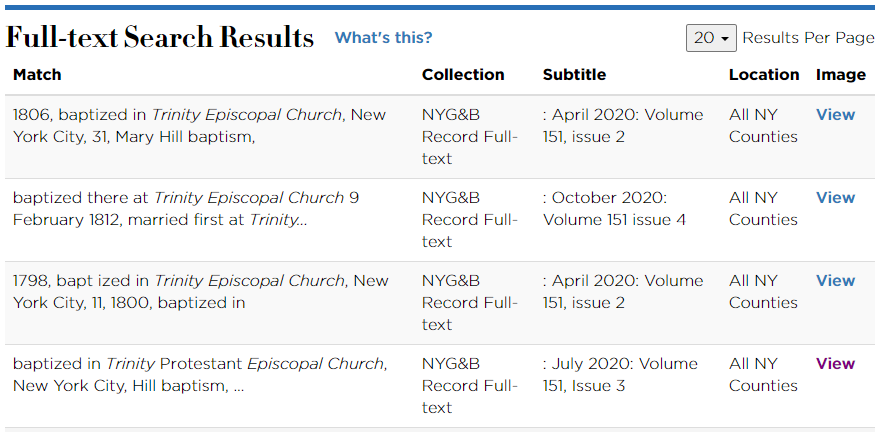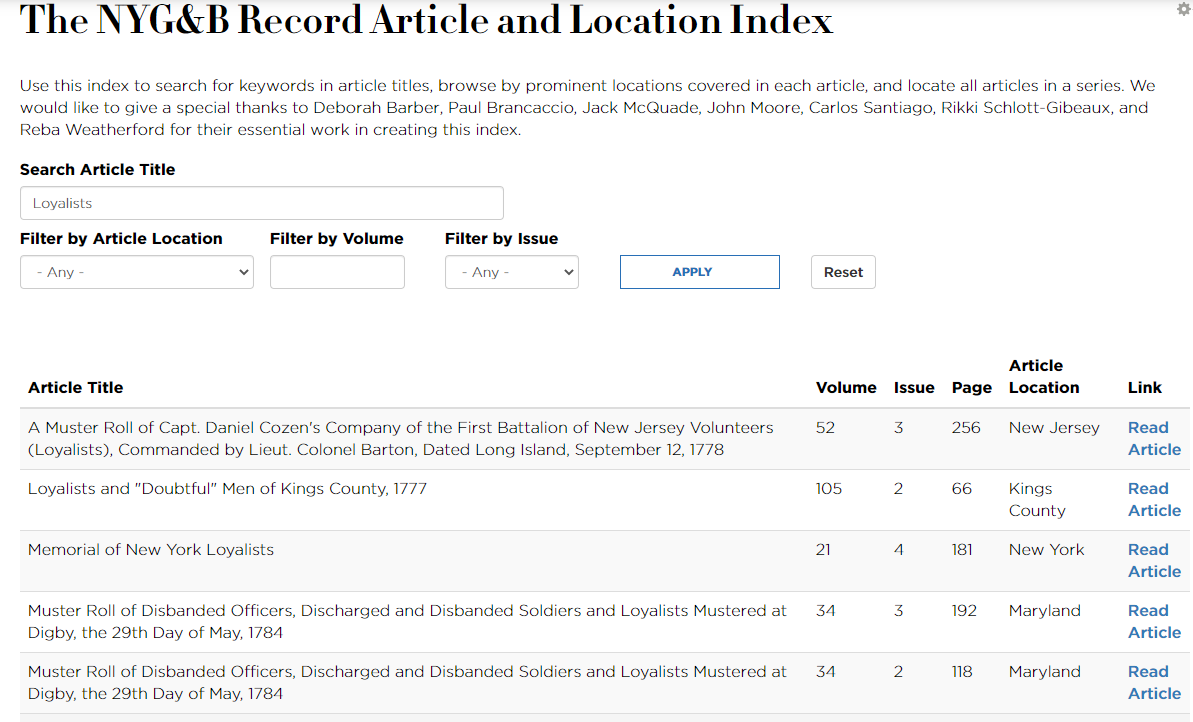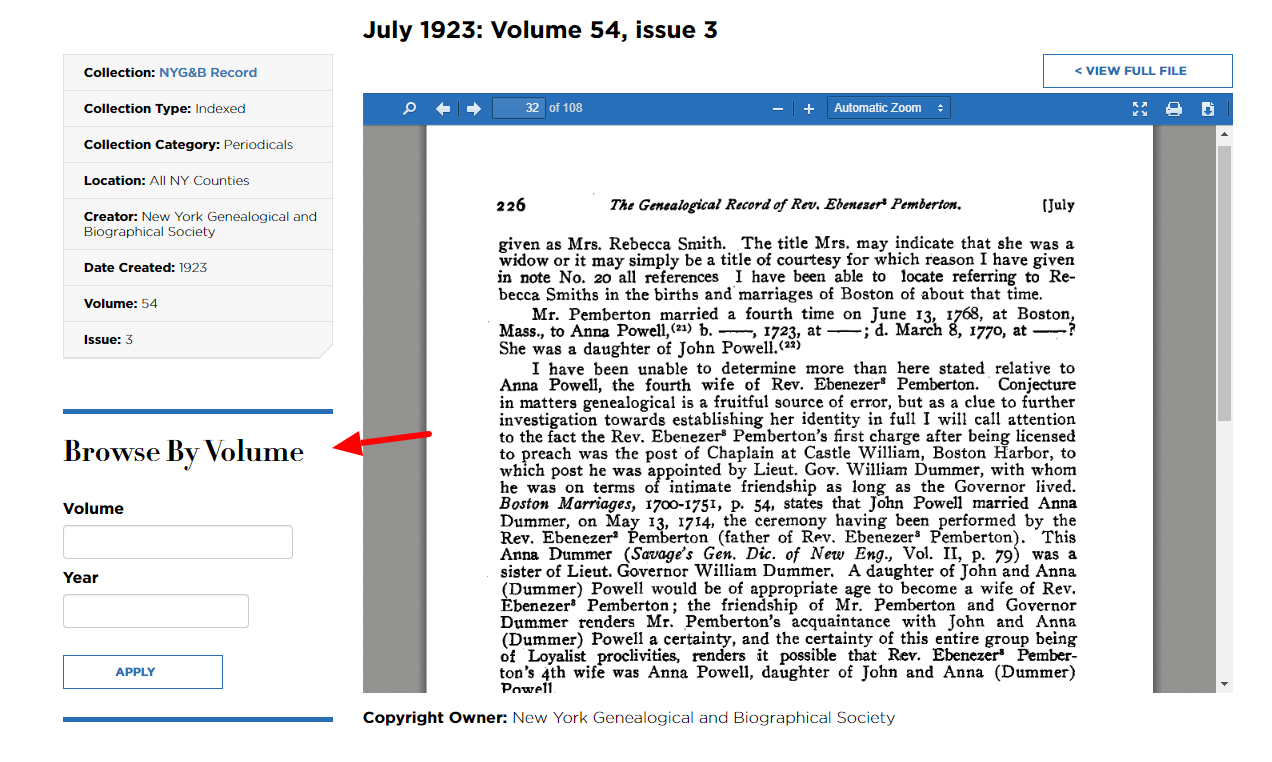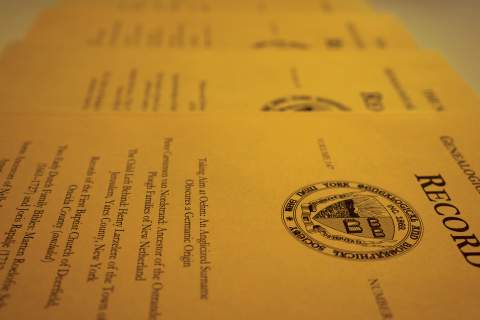The New York Genealogical and Biographical Record is a crucial resource for researching your New York ancestors.
This peer-reviewed journal has been published continually since 1870 and holds the names and stories of over a million New Yorkers. Many things found in The Record—including rare record set transcriptions, case studies, and compiled genealogies—are thoroughly cited, carefully written, and rigorously reviewed by New York genealogy experts.
You can use the digital archive of The Record to improve the results of your research in several ways. Read on to learn how to get the most out of this deep resource.
Video Presentation: Introduction to The NYG&B Record
Search the name index
Go ahead, search The Record for family names you're working on—especially New York families before 1900—you may be surprised how much you find!
Our online database The NYG&B Record is a searchable name index containing 1.4 million names found in issues of The Record.
Did you know? Worden’s Index, the name index compiled by Jean Worden, forms the backbone of this database. You may hear someone refer to “Worden’s Index to The Record"—know that this collection incorporates Worden’s Index.
Researchers can search the index by first name, last name, and keyword. Here is an example of a typical search result:

Go ahead, search The Record for family names you're working on—especially New York families before 1900—you may be surprised how much you find!
But even if you do not find specific names, The Record can still help you make new discoveries. Read on to learn other ways you can benefit.
Search the full text of every issue
Researchers can alternatively search the full text of every issue of The Record. Our collection The NYG&B Record Full-Text contains the combined extracted text from every issue.
When you search this version, it's a similar experience to searching the web: The results returned will show you the matching portion of the text, and results with a higher frequency of your search term will be ranked higher.

If you're only searching for names and keywords in The Record, you're missing out!
Even if an article doesn't contain a relevant family or individual name, it can still be incredibly helpful.
This version is most useful if you're searching for something other than a name.
Many researchers search the record for locations, record types, institutions, or other proper nouns—this version is optimized for that purpose.
Of course, name searches will work as well but many users prefer to use the indexed version for that purpose.
Find helpful articles in the article title index
If you're only searching for names and keywords in The Record, you're missing out! Even if an article doesn't contain a relevant family or individual name, it can still be incredibly helpful.
Find an article written about a location or record type that is involved in a research problem you're trying to tackle—following the author's approach and carefully looking at their citations will give you some ideas to repeat in your own research. This is an often-used strategy to break through brick walls.
A good way to search for helpful articles is to use our title index, which allows you to search all articles in The Record by article title. You can filter articles by volume, issue, and prominent locations covered in the article.

It is also particularly useful for finding serialized articles published in multiple installments. Visit The NYG&B Record Article and Location Index.
Find issues by volume or year
You will often find The Record cited or referenced in journal articles, family trees, and even other collections of compiled records.
To make tracking down citations easier, researchers can also enter the volume number or year and quickly navigate to their desired issue. You can do this from The Record collection pages, as well as in the image viewer when looking at an image from The Record.

Explore the subject indexes
Two expert authors have indexed articles based on the general subject. Jean Worden created a subject index to all articles from 1870–1982 and Harry Macy Jr. authored a subject index for 1983–2018.
These are both available to view in PDF form on our website.
You can search these documents within your web browser: Ctrl+F on Windows and Cmd+F on Mac will bring up this option in most internet browsers.
